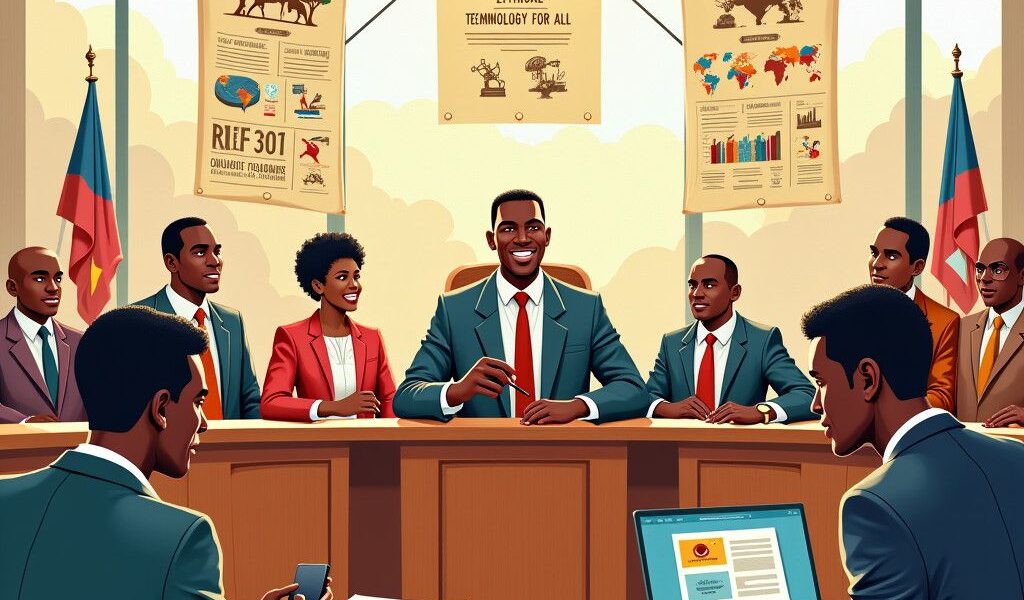Title: The Ethical Dilemma in Tech: DR Congo Sues Apple Over Conflict Minerals
In a significant move, the Democratic Republic of the Congo (DRC) has filed a lawsuit against subsidiaries of Apple Inc., claiming that the tech giant has profited from the use of conflict minerals sourced from the region. This legal action raises critical questions about the ethics of sourcing materials for electronics and the responsibilities of corporations within the global supply chain. The case sheds light on the complex interplay between technology, human rights, and environmental ethics.
Conflict minerals, which include tin, tantalum, tungsten, and gold, have often been linked to violence, human rights abuses, and environmental degradation in regions where they are mined. The situation in the DRC, rich in these minerals, has been particularly dire. The United Nations has consistently reported on the severe conditions faced by miners, including child labor, dangerous working environments, and systematic human rights violations.
Apple has long positioned itself as a leader in corporate social responsibility, emphasizing its commitment to ethical sourcing and transparency in its supply chain. Its 2023 Supplier Responsibility Report states that the company conducts regular audits of its suppliers to ensure compliance with its ethical standards. However, the DRC’s lawsuit poses a significant challenge to Apple’s claims. This highlights a wider issue within the tech industry regarding accountability and the traceability of materials.
The DRC’s allegations suggest that despite Apple’s efforts to ensure ethical sourcing, its suppliers may still be engaging in practices that perpetuate conflict and abuse. In this specific case, the lawsuit points to the alleged failure of Apple and its subsidiaries to adequately vet their supply chain for human rights abuses linked to the sourcing of conflict minerals. This raises the question: how can companies effectively guarantee that the materials they source do not contribute to violence and exploitation?
The situation further complicates matters when considering the economic dynamics at play. The DRC remains one of the poorest countries in the world, despite its vast mineral wealth. Many miners work in informal sectors that operate outside governmental regulation, leading to a lack of oversight in their working conditions. This adds another layer of difficulty for multinational companies trying to navigate ethical sourcing while also being responsive to their business interests and profit margins.
For Apple, which generated nearly $400 billion in revenue in 2022, the stakes are high. If the court finds in favor of the DRC, this could lead to substantial financial penalties and reputational damage. Moreover, a ruling could set a legal precedent that compels other technology companies to re-evaluate their supply chains.
To understand the broader implications, one must look at similar cases in the tech industry. For instance, in 2013, the U.S. Securities and Exchange Commission (SEC) implemented rules requiring companies to disclose whether their products contain conflict minerals sourced from the DRC. Following the implementation of these rules, companies began emphasizing their commitment to ethical sourcing in their public narratives. However, compliance with these regulations remains spotty, raising concerns about the actual adherence to ethical guidelines.
Moreover, consumers today are becoming increasingly aware of the ethical implications of their purchases. A 2022 survey found that more than 70% of respondents preferred to buy from brands that practice transparency. This growing consumer pressure could lead to a shift in how companies like Apple manage their supply chain. They may need to implement stricter oversight and demonstrate tangible actions to prevent conflict minerals from entering their products.
This case could serve as a pivotal moment in the tech industry, prompting companies to reassess their supply chains and enhance their ethical sourcing practices. A focus on traceability could become a new standard. Corporate social responsibility leaders might adopt technologies such as blockchain to ensure that every step in their supply chain can be verified and audited, thus securing greater accountability.
While Apple has made strides in promoting a more responsible supply chain, the DRC’s lawsuit emphasizes that there is still much work to be done. As corporations attempt to balance profit with ethical accountability, the outcome of this case may spark a long-overdue conversation about the moral implications of technology and the responsibilities that come with it.
In summary, the lawsuit filed by the DRC against Apple subsidiaries highlights critical issues surrounding ethical sourcing in the tech industry. As companies like Apple strive to present themselves as ethical brands, it becomes increasingly necessary for them to ensure that their supply chains align with their professed values. The outcome of this legal battle could have far-reaching implications for corporate accountability and consumer expectations in the digital age.








